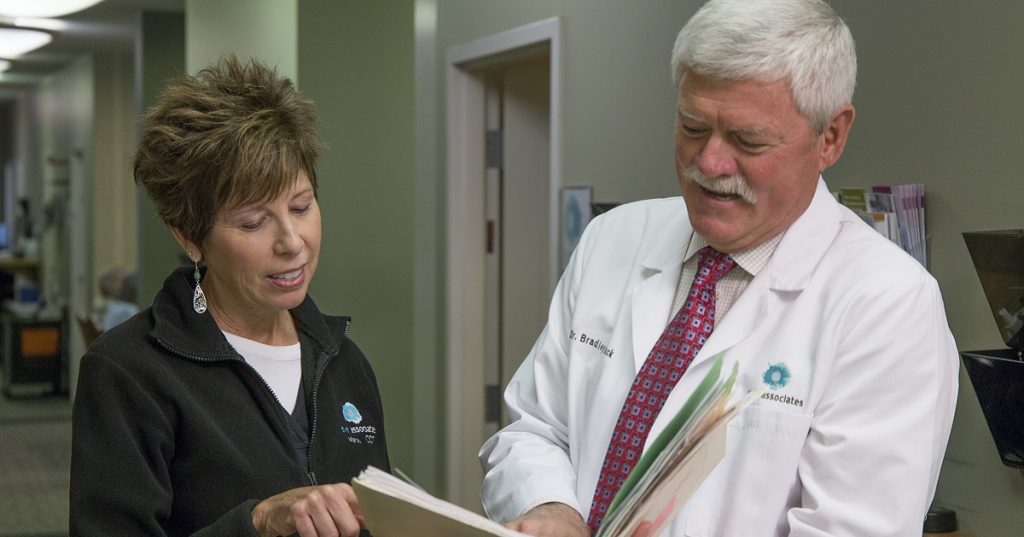For those of you who regularly go to an eye care practice, everything may appear the same between visits, but a lot is happening behind the scenes that may affect your experience.
Specifically, the eye care industry is undergoing a shift in ownership. In recent years, private equity (PE) firms (i.e., investment management companies backed by financiers) have been buying ophthalmology, optometry, and vision-related practices across the country from physicians. But why? Essentially, PE firms are interested in these practices because market factors (e.g., the aging population, technology improvement, and consolidation prospects) have helped them determine an opportunity to turn a profit within a few years.
If profit is to be had, you may be wondering why physicians are selling their practices to PE firms. It boils down to the business of health care getting more complicated. Every year additional laws and compliance requirements go into effect that must be followed to avoid penalties. This, coupled with third-party payers such as insurance companies and government agencies exerting greater control over provider reimbursement and patient access, is making managing a practice more difficult for physician-owners. Being able to transfer this responsibility and make some money in the process by selling to a PE firm is a tempting option.
At this point, you may be thinking “That’s all well and good, but how can this industry shift affect the quality of my eye care?” Well, as the patient you have the right to choose who you entrust to take care of your eyes. So before you book your next eye care appointment, consider how physician-owned practices impact patient care compared to those that are PE-owned.
Physicians control important decisions regarding patient care. By maintaining practice ownership, physicians can make decisions based on patient benefit, including equipment purchases and treatment offerings. Meanwhile, PE-owned practices answer to investors. This means decisions are based on financial implications, which may take precedence over patient well-being during the decision-making process.
Patients are more likely to be cared for by superior doctors. When physicians own a practice, they are better able to recruit and retain top doctors by offering future ownership or partnership in the practice. When the practice employs the best doctors, it elevates the quality of care patients receive. Since ownership is not an option for physicians in a PE-owned practice, it may impact the quality of the doctors on staff.
Practice staff is held more accountable. In physician-owned practices, staff answer directly to clinically knowledgeable owners who are onsite. This allows physician-owners to influence and lead staff to best serve patients and provide high-quality care. In PE-owned practices, this team accountability is lost because the owners are remote, faceless investors unable to form a tight-knit relationship with staff.
Patients are a part of the practice family. When owners and staff collaborate with one another on a daily basis, it enhances working relationships and fosters team camaraderie. When the practice has a supportive, family-like atmosphere, personnel look forward to coming to work, which positively affects how they interact with patients. In PE-owned practices, these close owner-staff relationships are difficult to develop due to physical separation and can affect patient relations.
Patient needs are reflected in scheduling. When physicians own the practice, they have more control over operations, including scheduling. This allows physicians to adjust schedules based on patient needs and ensure that unnecessary delays don’t negatively impact patient welfare. In a PE-owned practice, physicians are employees and have less control over their working hours, making their schedules less adaptable to meet patient needs.
Practices are part of the community. Under the direction of physician-owners, practices are more capable of giving back to the community they serve through free clinics, local health fairs, and school screenings. These acts of charity improve the overall well-being of the community and can be done without immediate concern for how they may impact the bottom line. Meanwhile, in a PE-owned practice, greater emphasis is placed on meeting quarterly earnings and the pursuit of profit, making charitable community acts less likely.
For these reasons, Dr. Black’s Eye Associates is committed to staying physician-owned so we can best care for our patients and community. We are driven to do the right thing at the right time for the right reasons. It’s our promise to never lose sight of you, our valued patient.






